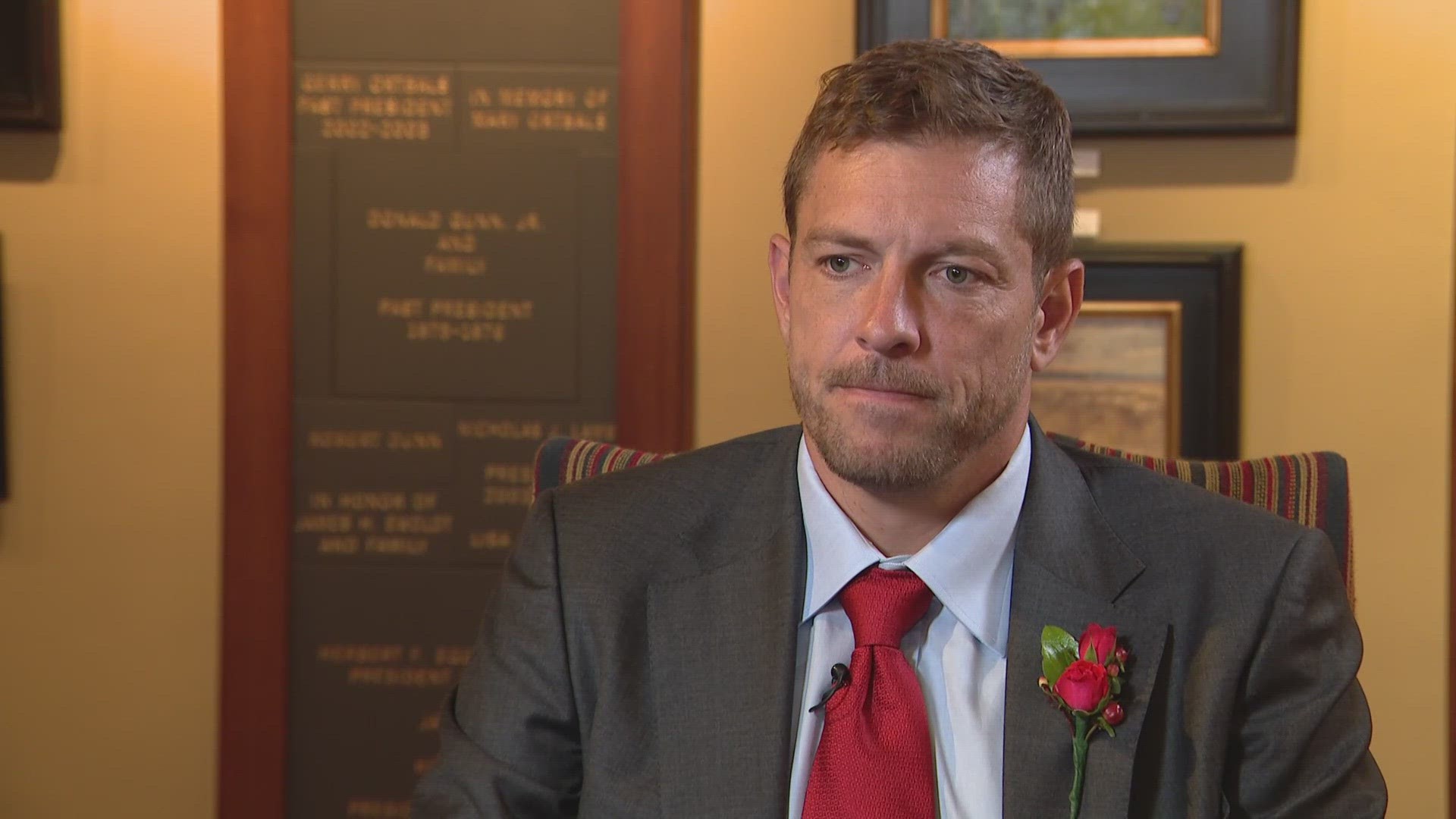Imagine, just for a second, you're an NBA rookie.
More specifically: You're 19 years old, four months removed from finishing your one and only year at college. Your on-court skill got you here — as a lottery pick, no less.
In October, your NBA career, and all of the ups and downs that come with it, officially begins.
Excited? Of course. Terrified? Perhaps.
Enter the NBA Rookie Transition Program.
The mandatory four-day program, which began in 1986, is designed by the NBA and the National Basketball Players Association to prepare NBA newcomers for the future through a series of presentations, panel discussions and interactive workshops conducted by NBA and NBPA members, current and former players and legends, and experts in various fields not related to basketball.
This year's program, which started Sunday and concludes Wednesday, has focused on a variety of topics, including: career development, diversity and inclusion, financial education, media training, NBA history, nutrition and hydration, rest and recovery, social media, and stress management.
"We're simply trying to remove the excuse that a guy would ever say 'nobody told me that,'" NBA senior vice president of player development Greg Taylor told USA TODAY Sports on Tuesday. "We're trying to tell you and then give you the resources and support and guidance you need to really have a successful and prosperous career."
That support and guidance isn't lost on the players.
"It’s definitely a long couple of days, but it’s not wasted energy or time," Boston Celtics forward and No. 3 overall draft pick Jayson Tatum said. "Everything that we’ve learned or has been presented to us is something that we can use along the way in everything that we encounter during this process.”
"They’re keeping us busy, but it’s full of a lot of information, a lot of things that we can take for our transition into the NBA," Kennard said. "It’s great to take it all in, listen, learn, because there’s a lot of guys here — people that have been involved in the league for a long time and they have a lot of experience. They know what they’re talking about, so we listen. I know everybody’s really engaged in what’s going on. It’s been great. I’ve really enjoyed it.”
Retired NBA forward Purvis Short, who was drafted fifth overall by the Golden State Warriors in 1978 and now serves as the NBPA's chief of player programs, said he wishes the league had something similar when he was a rookie.
"The NBA is tough enough as it is, but coming in without any guidance, coming in without understanding the resources that are readily available to you, coming in really just not having a lot of that important information, it’s like swimming against the tide," Short said.
While the program could be construed as a four-day information overload, the NBA has made an effort to share many of the same messages since May's draft combine.
"Overwhelming? It could be. But we think that the way we go about doing the program is actually bite sized, reinforcing the messages that we want them to know and ultimately I think it's a successful way to do it," Taylor said.
One of those messages is the importance of money management — a portion of the program De'Aaron Fox, the No. 5 overall pick by the Sacramento Kings, got a lot out of.
“(The focus on) how to manage your money (stuck with me)." Fox said. "Keep a budget for every month, just make sure that you’re not spending more than you’re making every month."
The program aims to give the attendees — many of whom have become multi-millionaires in the past few months — the skills needed to make sound financial decisions and to avoid falling victim to the pitfalls many professional athletes face.
"I didn't grow up around tables talking about 401(k)s and annuities, it's something I had to learn. So we try to make sure we give the right information in a way that our guys can understand," Taylor said. " ... While we certainly don't give any guidance as to what investments to make or who to work with or whatever, what we do try to be clear about is: here are good management questions that you can make sure you ask your team, because you need to be informed about what's going on."
Follow USA TODAY Sports' AJ Neuharth-Keusch on Twitter @tweetAJNK


